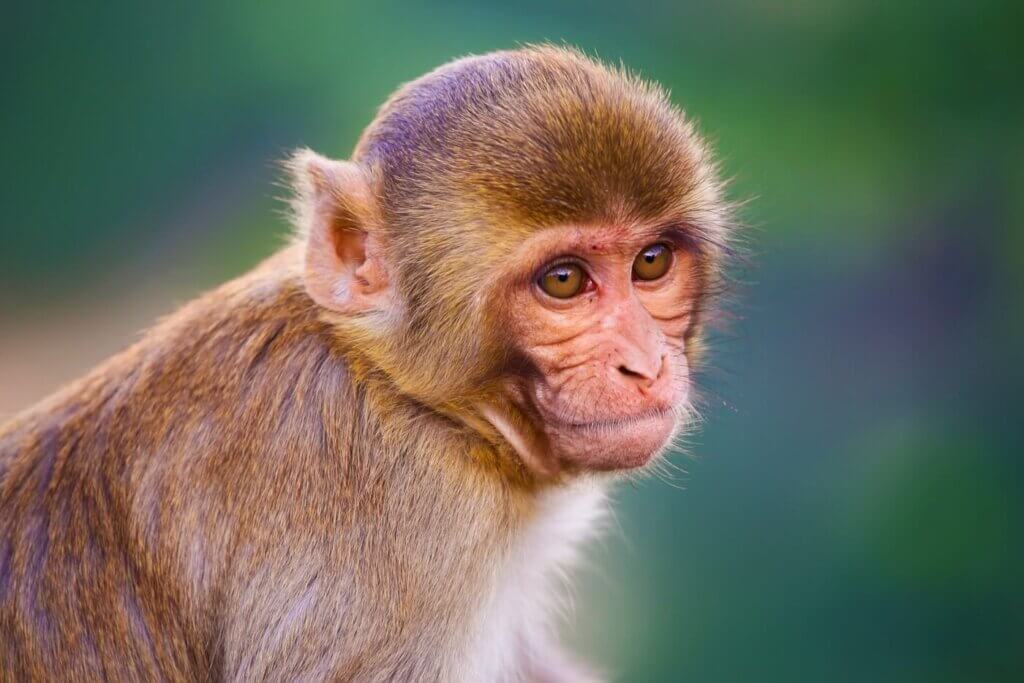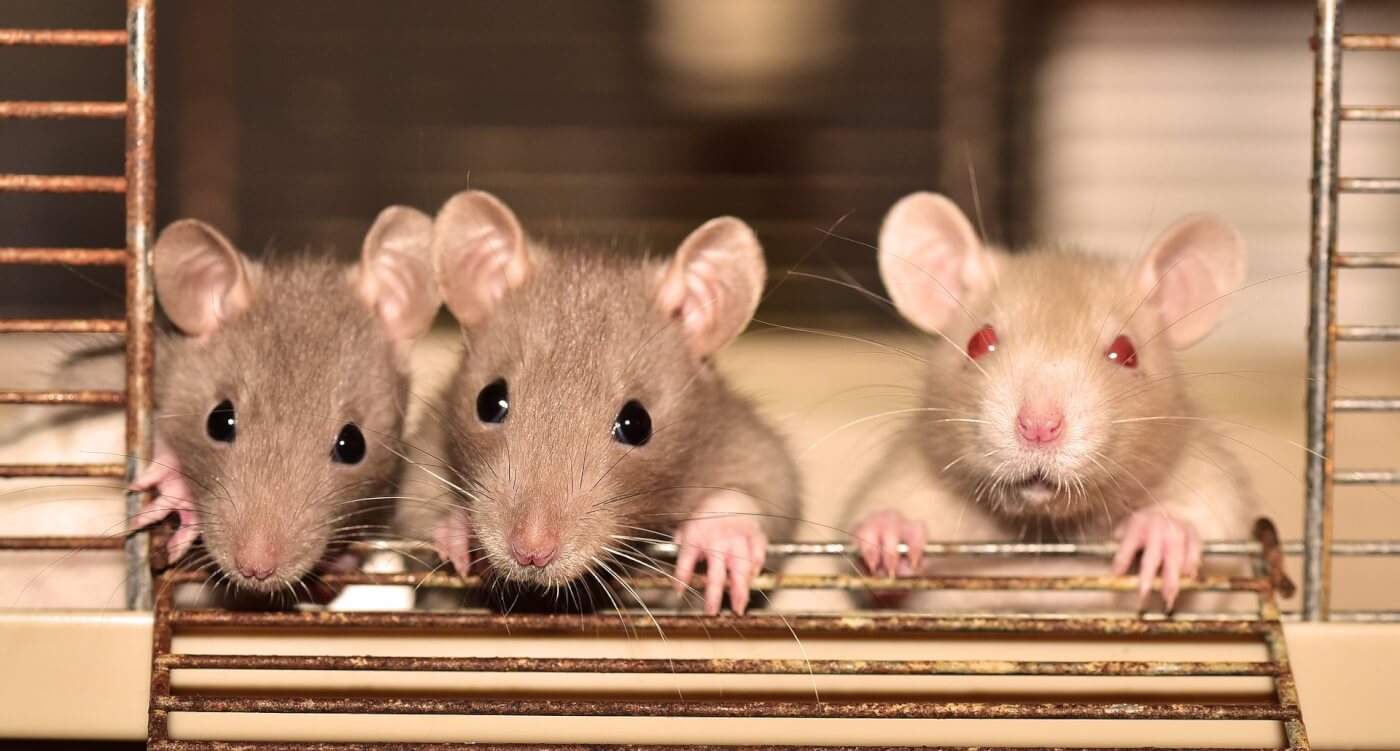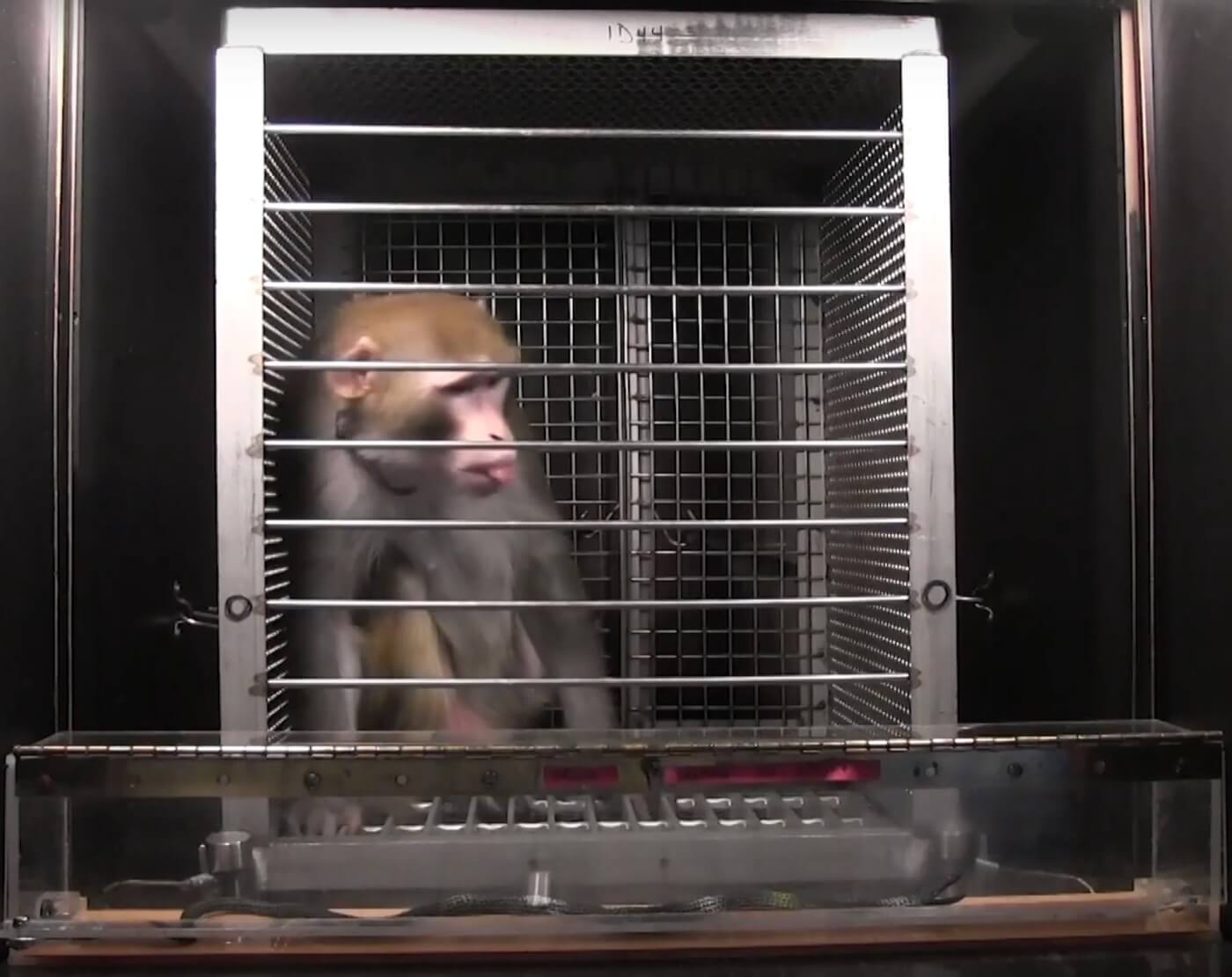7 Things You Need to Know About Experiments on Animals and COVID-19
“The scope and scale of the coronavirus crisis has brought misery to millions of people and changed the way we live and work. Ending this pandemic will also require a paradigm shift within the scientific community.
Even though much remains uncertain, one thing is clear: Experimenting on animals squanders precious time and resources when both are in short supply.”
—Dr. Samantha Saunders, a veterinary surgeon at the PETA Foundation (U.K.) who holds a Ph.D. in coronavirology
1. Like all viruses, the novel coronavirus impacts different species differently.
We know that monkeys infected with COVID-19 don’t develop the severe symptoms that we see in humans.
When asked about seemingly promising experimental results in rhesus macaques, Dr. Malcolm Martin, a virologist with the National Institutes of Health (NIH), “cautioned that monkeys are different from humans in important ways.“
 © iStock.com//Donyanedomam
© iStock.com//DonyanedomamThis means that findings from other animals may not apply to humans and may instead mislead researchers, squandering valuable time and money and leaving patients waiting for treatments.
For example, a recent study found that hydroxychloroquine can block SARS-CoV-2 infections in one species of monkey, thanks to a specific enzyme found in that animal. However, humans lack that enzyme—hence, the drug’s failure in clinical trials. Bottom line: Monkeys aren’t good stand-ins for humans.
2. Experimental vaccines for other coronaviruses offered protection to other animals but failed in humans.
Severe acute respiratory syndrome coronavirus (SARS-CoV) and Middle East respiratory syndrome coronavirus (MERS-CoV) emerged in 2002 and 2012, respectively.
Animal experimenters have infected mice, ferrets, rhesus macaques, African green monkeys, marmosets, hamsters, camels, rabbits, alpacas, horses, and other animals with these viruses.
Some resulting experimental vaccines showed promise, producing antibodies that neutralized the viruses. However, none of them were approved for humans.
3. Experiments on animals divert time and funding from superior, non-animal methods.
In order to speed up the development of a potential vaccine for COVID-19, both the U.S. Food and Drug Administration (FDA) and NIH greenlit landmark human clinical vaccine trials without first requiring extensive tests on animals.
Companies are usually required to spend years putting animals through the agony of new product tests before human clinical trials are allowed to begin, even though those tests don’t accurately predict whether a drug will work in humans. NIH itself reports that 95 out of every 100 new drugs that test safe and effective in animal tests fail in humans.

While the historic decisions by NIH and the FDA won’t stop all tests on animals for the vaccine, they pave the way for safe, straight-to-human vaccine trials.
4. Injecting the virus into monkeys risks creating a new variant—and the fact that the virus mutates is further evidence that monkeys are bad “models” to use when studying COVID-19.
Research done by David Matthews, a University of Bristol coronavirologist, definitively shows that the SARS-CoV-2 virus adapts to and mutates in monkey tissues. So monkeys infected with the virus end up with an additional infection that’s the result of the mutation. Commenting on the scientific havoc that this development could produce, Matthews says, “[I]t could again basically make a mess of your vaccine trial by creating anomalous results that you misinterpret as either the vaccine is working or it’s not working.”
5. School closures caused by the outbreak of the novel coronavirus led to the mass killing of countless animals who were slated to be used in crude and worthless experiments in university laboratories.
The experiments were deemed not “essential,” while the animals were considered “extraneous” and expendable.
PETA is calling on universities to revamp their research programs and to use this crisis as an opportunity to close down their animal laboratories and switch to sophisticated, non-animal research methods. Join us!
6. Around the globe, a number of non-animal tests are already underway, aimed at developing a vaccine or an effective treatment for COVID-19.
Given the scale and seriousness of this pandemic, researchers can’t afford to waste time conducting useless experiments on animals.
Check out these innovative, animal-free COVID-19 experiments that allow researchers to avoid cruel, archaic tests on animals in favor of cutting-edge, human-relevant methods.
7. Thousands of monkeys imprisoned in laboratories are susceptible to contracting the novel coronavirus, and they have no line of defense against it.
Many novel coronavirus infections have been asymptomatic, thereby increasing the likelihood that lab staff may have already exposed these sensitive animals to the virus. Laboratories could very well become dangerous hotbeds for COVID-19, with a negative impact on experimental results.

Any experiments conducted on monkeys compromised with the novel coronavirus would be worthless. That’s why PETA is demanding that one facility, the Washington National Primate Research Center, immediately stop all experiments on primates and transfer the animals to sanctuaries, where they can live in peace for the remainder of their lives. Please help us.
Take Action Now!
PETA’s action alerts make it possible for you to take action for animals with the quick click of a button. Even if you’re quarantined or working from home, it takes just a minute to help countless living, feeling beings used in experiments.
Below, there are multiple opportunities to help. As soon as you take one action below, another will automatically appear in its place.
Just enter your information once, and then keep clicking the “Send Message” button until you’ve completed them all. Once you’ve finished, be sure to share this page with your friends, family members, and social media followers. Encourage them to join you in taking action for animals today and every day.